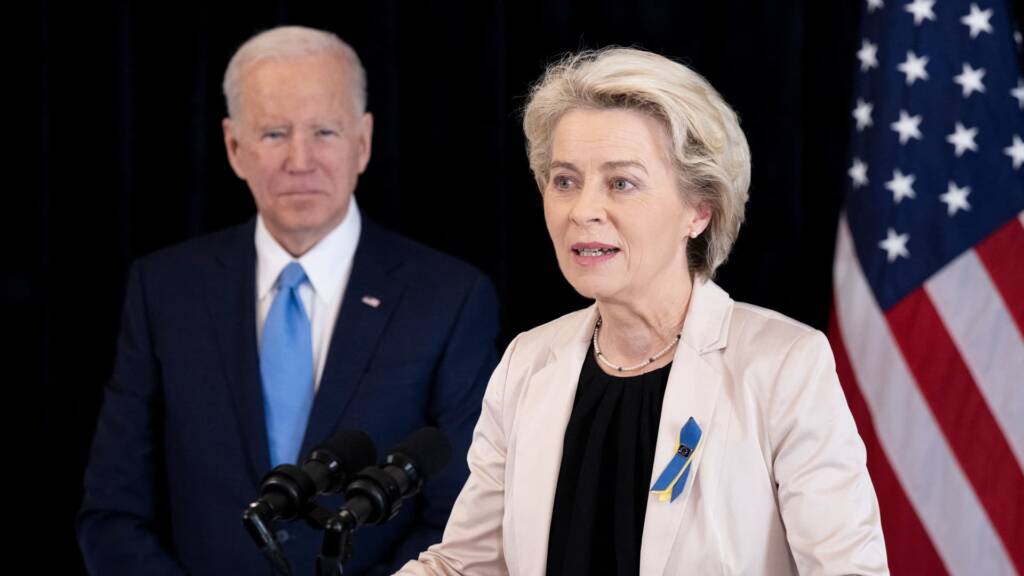In the 21st century, we’re not just basking in the glow of our screens but also navigating the tangled web of energy supply. Europe, with its industrial swagger, seems particularly fond of this reality.
Sanctions against Russia? Well, those have worked out swimmingly, haven’t they? Despite their obvious lack of success, European leaders soldier on with this policy. The energy sanctions are especially charming, causing quite the upheaval. American gas is delightfully pricey compared to Russian gas, and Russian oil, taking the scenic route through various transit countries, isn’t exactly a steal. The result? European economies, particularly Germany’s, are watching businesses pack up and leave at an impressive rate.
In a bold move, Ukraine decided in 2023 that it would stop transporting gas to Europe, conveniently ignoring those minor contractual obligations with Russia and various European states. Europe, ever the generous benefactor, continues to send billions to Ukraine without batting an eye. And let’s not forget the North Stream 2 affair—no major inquiry there, naturally. Meanwhile, Europe dreams of a green energy utopia, despite lacking the technology to sustain it. European energy policy, it seems, is a masterclass in wishful thinking.
The collision of green dreams, questionable political acumen, and harsh economic truths has resulted in a delightful chaos. The average European citizen is beginning to notice the cracks. Businesses, desperate for affordable raw materials and energy, are losing their competitive edge and international orders. This leads to unemployment and a shifting socio-economic landscape. In Germany, company closures are now as predictable as a British weather forecast.
It is quite amusing to see where some of these companies are heading—they’re emigrating to the USA. Clearly, someone is benefiting from this fiasco, and it’s not Europe. Meanwhile, German firms are struggling to compete with their Chinese counterparts. Economically, the winners here are the USA and China. But what’s the grand solution? Should we expand the European Union into some kind of superstate to rival these giants, or should we focus on boosting the individual interests of nation-states?
Many are already proclaiming the European project a colossal flop. The Ukraine conflict has made it abundantly clear that Europe is anything but united. We witnessed the same disarray during the 2015 refugee crisis. Whether it’s sanctions or refugee acceptance, numerous countries simply refuse to align with the EU’s directives. One thing is certain: energy policy must be discussed at the national level since it pertains to a country’s core security interests. Entrusting these issues to the collective wisdom of the EU has proven to be a spectacular misstep. Sanctions should also be handled individually rather than collectively.
The current political circus in Europe vividly demonstrates the EU’s weakness. Without new leadership, Europe’s economic decline seems inevitable. Perhaps the situation needs to deteriorate further for people to grasp the importance of political engagement. The politicians’ poor decisions have inflicted long-term damage on the European economy, and it’s uncertain how long it will take to remedy this mess.
The passive stance of businesses towards political decisions is particularly baffling. Why didn’t individual companies and business associations oppose the sanctions policy? Were the economic leaders unaware that they would become the victims of these sanctions? Economists could have forecasted this debacle years ago since companies typically plan for the long term. How did so many strategic errors occur in such a critical sector? Unfortunately, the trend continues as nothing significant is being done to address energy supply issues, even amid the climate change frenzy.
Do these leaders genuinely believe that green energy can sustain heavy industry? How many wind turbines would it take to power Germany’s steel industry? The sanctions policy and climate policy are drifting further from reality. Ideology has no place in economic matters, yet Europe seems to think otherwise. It’s quite clear that ideological and political blunders are driving the continent’s economic decline.
No matter what changes come in the next few years, Europe will need a long time to recover from these missteps. If we examine the situation closely, more errors are likely on the horizon, impacting other political areas. These examples show that most European politicians are incapable of learning from their mistakes. Instead of correcting errors, they distract the public with various campaigns. And with the media under tight government control, this strategy is typically quite effective.
